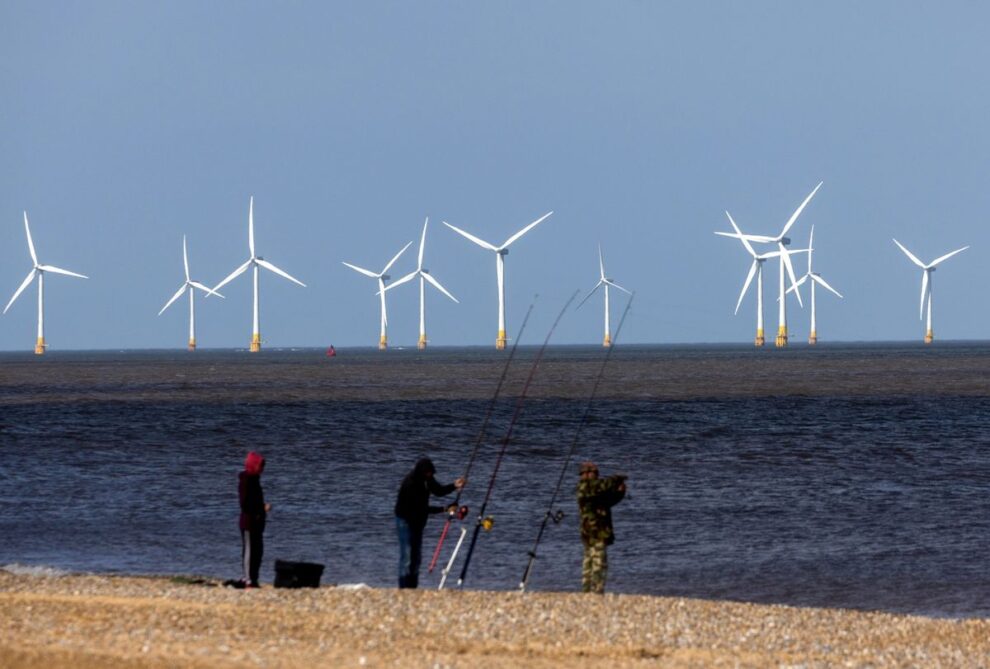Orsted A/S, the world’s largest developer of offshore wind farms, said its biggest project in the UK is at risk of being scrapped without government support to help manage soaring costs.
Britain’s renewable power industry has for months lobbied for measures to ease the burden of spiraling equipment prices and high financing costs as interest rates rise. Without government support in the upcoming UK budget, a wave of projects that were approved last year may be unable to go ahead.
“Nationally significant projects like our proposed Hornsea 3 offshore wind farm are at risk unless the government takes significant action,” said Duncan Clark, Orsted’s head of the UK and Ireland. “The sector is asking the government for targeted support to ensure the UK remains an attractive destination.”
The problem is rooted in contracts struck last year that govern how the UK wind farms sell power. Developers agreed to sell electricity at record-low prices under so-called contracts for difference, but rising costs mean those deals are now jeopardizing the investments needed to build the wind parks.
“Industry is doing everything it can to manage costs on these projects,” Clark said. “But there is a real and growing risk of them being put on hold or even handing back their CfDs, with repercussions that could impact across the economy as reserved capacity with supply-chain businesses goes unfulfilled.”
The executive called on the UK to adjust its capital-allowance program, which determines how much businesses can claim on investments in equipment and machinery — the bulk of the cost for building a wind farm such as the £8 billion ($9.6 billion) Hornsea 3.
Wind Targets
Offshore wind is the backbone of Britain’s climate and energy-security plans. The country has a goal to reach 50 gigawatts of installed capacity by the end of the decade, more than triple today’s amount. It’s unlikely that target will be met, and progress will be even slower if current projects are put on hold.
The situation also casts doubt on the viability of the next round of projects. The UK auctions CfDs every year, but the government hasn’t lifted the price at which developers can bid to sell power.
“The challenge is bigger” going forward, said Keith Anderson, chief executive officer of Iberdrola SA’s Scottish Power unit. “The supply chain will be very nervous at agreeing to contractual terms with anyone.”





































